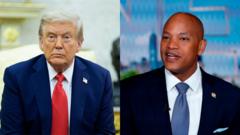In a surprising turn of events, a prohibition on wigs, hair extensions, and skin-lightening products at the Grand Théâtre de Dakar triggered an overwhelming backlash, forcing officials to rescind the ban within just 24 hours. The controversial ban, which aimed to promote "Pan-African values" according to Serigne Fall Guèye, the theatre's director, was documented in an internal memo from the national culture ministry.
Critics characterized the ban as an intrusion into women's personal choices, sparking debates about gender inequalities in Senegal, where just four out of 25 cabinet positions are held by women, and a dedicated Ministry of Women has been dissolved. Social media exploded with criticism labeling the directive as sexist and paternalistic.
Adding fuel to the fire was Serigne Fall Guèye's political background as a member of Pastef, the ruling anti-colonial party, which advocates for a return to what it describes as authentic African values. Political analyst Fatoumata Ba expressed that the ban illustrates a broader agenda to enforce a specific cultural identity and suppress dissent.
Henriette Niang Kandé, a feminist analyst, highlighted the arbitrary nature of such restrictions in a viral post, questioning whether the director would impose similar limitations on men regarding their appearance. While some supporters of Guèye viewed the ban as a means to uphold cultural integrity, critics argue that it obscures more pressing issues related to social justice and systemic inequality.
By Tuesday, under mounting scrutiny, Guèye declared the ban null and void, citing public misunderstanding but reaffirming his commitment to cultural identity in the arts. This episode, however, has exposed rising dissatisfaction with Prime Minister Ousmane Sonko among urban youth and progressive factions that once supported him in the 2024 elections.
The debate surrounding the wig ban is not merely superficial; it intertwines complex themes of post-colonial identity, gender issues, economic realities, and individual freedoms. With the ban lifted, the conversation about who defines cultural authenticity continues to resonate across Senegal.
Critics characterized the ban as an intrusion into women's personal choices, sparking debates about gender inequalities in Senegal, where just four out of 25 cabinet positions are held by women, and a dedicated Ministry of Women has been dissolved. Social media exploded with criticism labeling the directive as sexist and paternalistic.
Adding fuel to the fire was Serigne Fall Guèye's political background as a member of Pastef, the ruling anti-colonial party, which advocates for a return to what it describes as authentic African values. Political analyst Fatoumata Ba expressed that the ban illustrates a broader agenda to enforce a specific cultural identity and suppress dissent.
Henriette Niang Kandé, a feminist analyst, highlighted the arbitrary nature of such restrictions in a viral post, questioning whether the director would impose similar limitations on men regarding their appearance. While some supporters of Guèye viewed the ban as a means to uphold cultural integrity, critics argue that it obscures more pressing issues related to social justice and systemic inequality.
By Tuesday, under mounting scrutiny, Guèye declared the ban null and void, citing public misunderstanding but reaffirming his commitment to cultural identity in the arts. This episode, however, has exposed rising dissatisfaction with Prime Minister Ousmane Sonko among urban youth and progressive factions that once supported him in the 2024 elections.
The debate surrounding the wig ban is not merely superficial; it intertwines complex themes of post-colonial identity, gender issues, economic realities, and individual freedoms. With the ban lifted, the conversation about who defines cultural authenticity continues to resonate across Senegal.



















